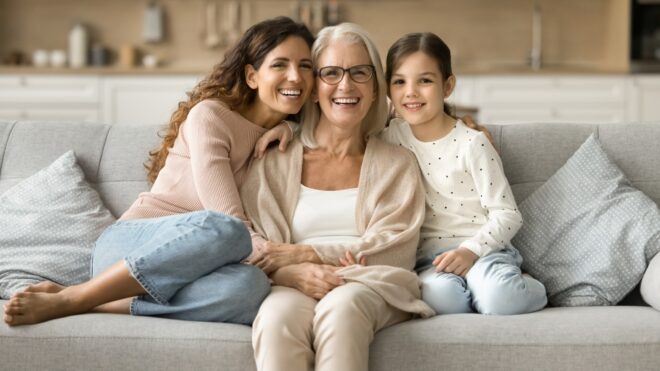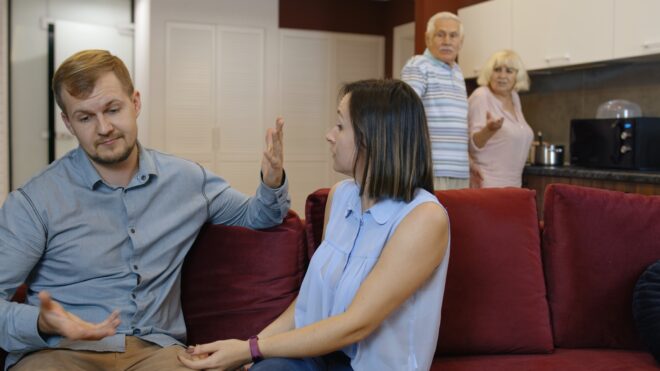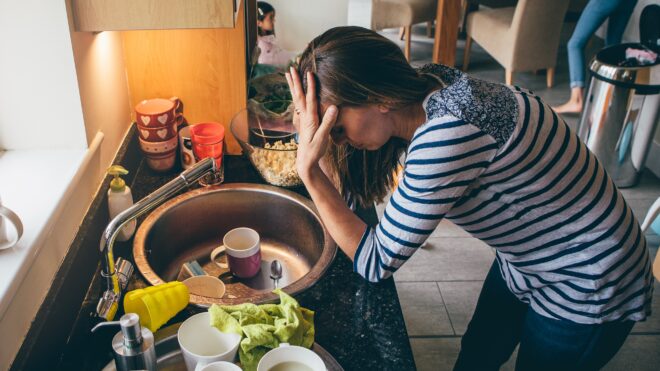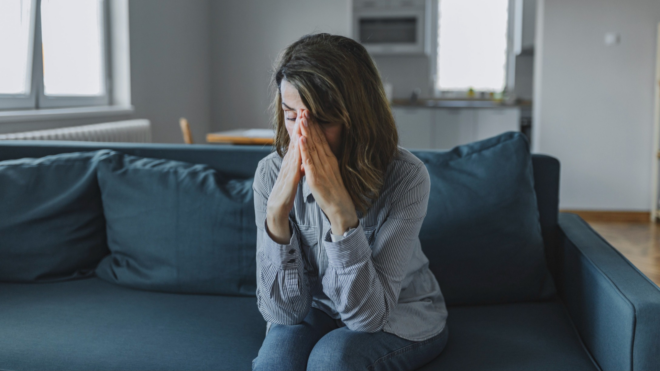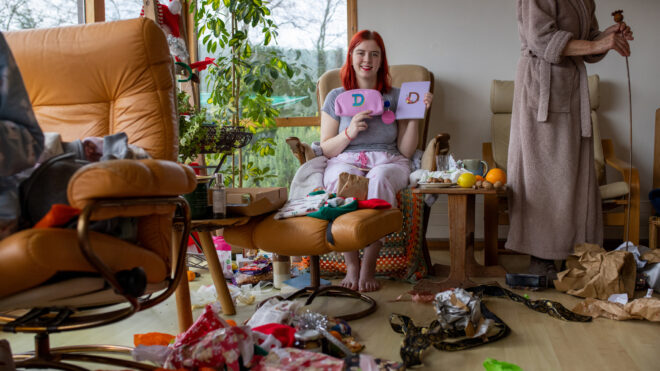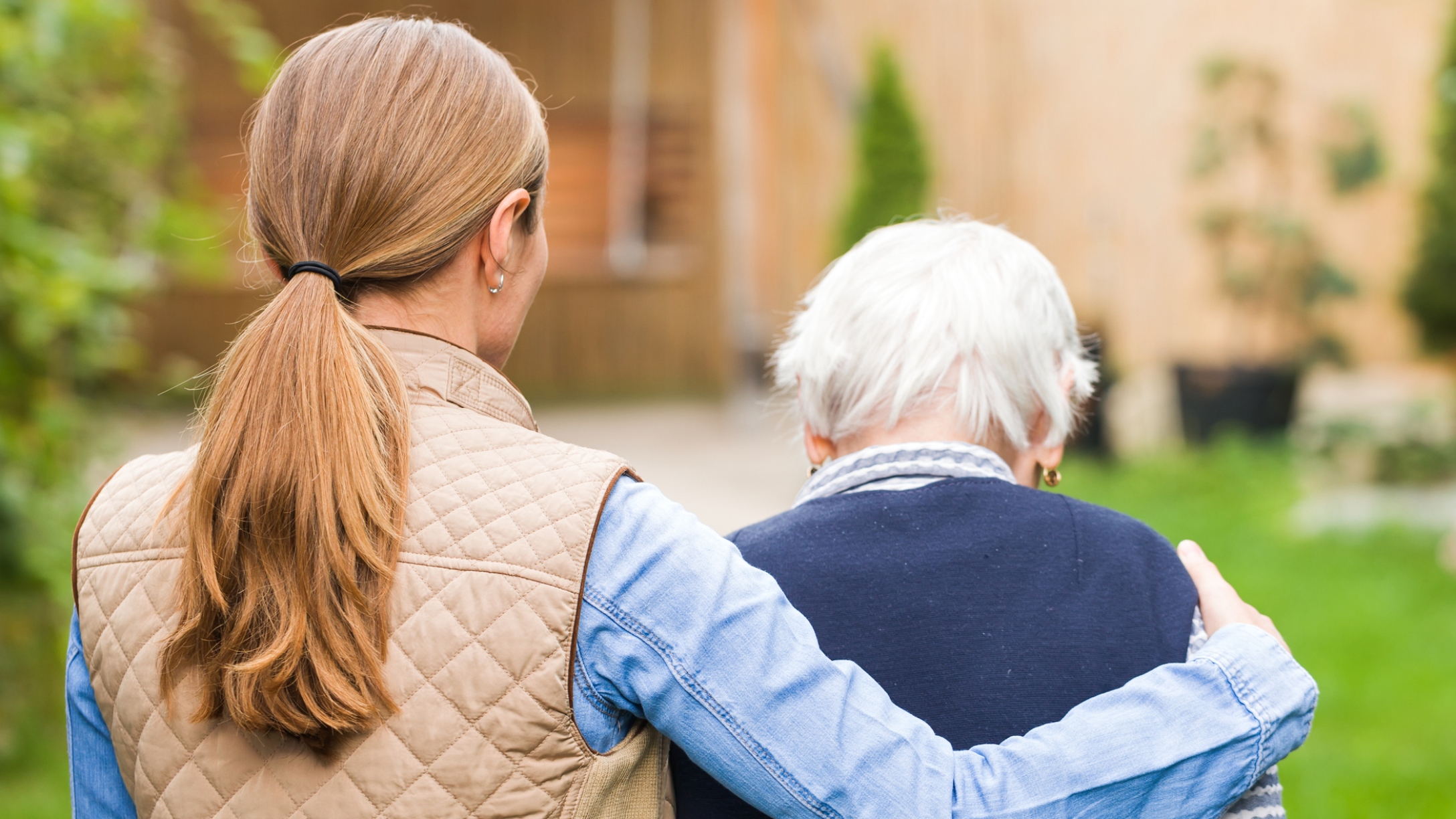
When it comes to caring for young children, women often find themselves in the role of default parent for many things. This can make the child-rearing years positively exhausting. And just when a woman feels like she may have a bit of relief as her children get older, she may find herself reaching the Sandwich generation and once again caring for someone else.
A new report from Wells Fargo shows that women play an essential role in the growing need for elder care in the United States. Perhaps unsurprisingly, women will take on the brunt of caring for older adults in the coming years, often with no compensation for the physical and mental load that comes with caring for an aging parent.
More from CafeMom: Helping Your Parents Hang Up Their Car Keys as They Age
Women appear to be the default caregivers no matter what age needs care.
According to the report, the population in the United States is aging rapidly, and the need for elder care is on the rise. The report states that the US has never been older, and people 65 and older account for 22% of the population, which is expected to grow exponentially over the next decade. That means many seniors will need additional care, and women will likely be the ones looking after them. If you're a Sandwich mom — a mother who is still raising her kids but now faced with caring for aging parents — you're likely already well aware.
"Perhaps not surprisingly, women shoulder a disproportionate share of unpaid care responsibilities but also play an outsized role in providing paid care. As the population rapidly ages, it won't be able to do so gracefully without her," the report notes.
Elder care often comes without compensation.
The report points out that women made up 59% of unpaid caregivers in 2021 to 2022. Not only have women increased their time in the formal labor force, but they also take on disproportionately high amounts of unpaid elder care. According to the report, up to 14% of the population does unpaid elder care, and of those, most are women.
"Women who provide unpaid care but stay in the labor force are also more likely to decrease their paid hours worked. The share of women 55+ working part-time due to family obligations was 5.3% in 2023, compared to 1.3% among men," per the study. "In other words, unpaid eldercare constrains older women's labor force engagement, and if responsibilities were more evenly distributed, women ages 55+ could have made even stronger contributions in recent years to the labor force."
When families choose paid elder care, women are often the caregivers.
The cost of elder care is extremely high, but when families can afford it, they often find that women are still the main caregivers. According to the study, women account for 82% of home health and personal care aids. The Department of Labor projects an increase of 22% in these types of elder care jobs by 2032, but they will likely be filled by women.
"However, paid care work relies disproportionately on women ages 55+, a group in the midst of its own tug-of-war between unpaid care responsibilities and paid employment," the report notes.
Elder care jobs may be plentiful, but they are often low-paying positions.
These types of jobs can be physically and emotionally demanding, and the wages often fall below the median pay of other female-dominated jobs, such as secretaries and administrative assistants. The report predicts, however, these positions are likely to decline in the coming years as automation and artificial intelligence replace them.
More from CafeMom: 10 Tips for Having an Aging Parent Move In With Your Family
Elder care relies on women.
The study explains that whether caregivers are paid or unpaid, family or stranger, they likely will be women. The need continues to increase, and we all need to prepare and understand that our parents will need our help.
"The bottom line is that the rising need for eldercare is a cost to us all. Whether you're stepping out of the labor force to care for a family member or loved one directly, laying out the monetary expense of a nursing home facility or in-home health aide, or simply contributing in the form of (potentially higher) taxes, we all pay for eldercare. Yet women have and are positioned to shoulder a disproportionate share of caregiving ahead. As the United States transitions to a more care-oriented economy, it will need her," the study concludes.

